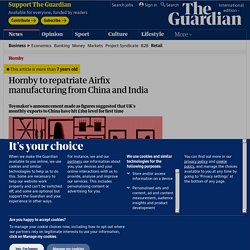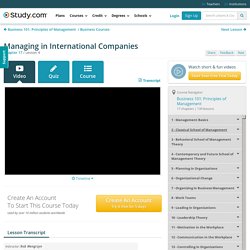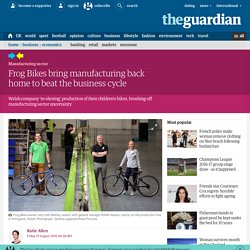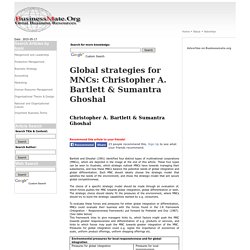

Hornby to repatriate Airfix manufacturing from China and India. Hornby, the model train manufacturer that also owns Airfix, is to return some manufacturing from China and India to Britain, becoming the latest UK company to repatriate production because of rising wage costs in emerging markets.

The toymaker's announcement was made as figures suggested that Britain's monthly exports to China have hit the £1bn level for the first time, amid signs that UK firms are diversifying away from the crisis-hit eurozone. Hornby said it would be producing a new Airfix range that does not require glue, to be known as Quickbuild, in Sussex. Its chairman, Roger Canham, told Sky News: "The economics of sourcing our products from China continue to be affected by the reducing availability of labour and increasing costs.
In industrialised areas the minimum wage went up by around 15%, with wage inflation slightly ahead of that. You can no longer just apply the rule that manufacturing can be [done] elsewhere. " Hornby trains head back to Britain. Globalisation is Good - Johan Norberg on Globalisation(full video) Bartlett & Ghoshal - International Strategies. 3.9.3 Managing in International Companies. Managing in international companies takes a special breed of person.

The reason for that is that not only do managers have to have an understanding of how to conduct business, but they also must deal with several other factors that are present in the international arena. Explore our library of over 10,000 lessons You now have full access to our lessons and courses, watch the lesson now or keep exploring. You've watched a video! Now you are officially smarter, check out the next video or take the quiz to keep learning. You took a quiz! You just finished your first lesson. You're making great progress. You've learned so much, but only scratched the surface. Getting a perfect score on a quiz is how you gain course progress.
You're getting the hang of this! Look how far you've come! Keep clicking that 'next lesson' button whenever you finish a lesson and its quiz. You're 25% of the way through this course! Two days in a row, nice! 3.9.3 Globalization explained. 3.9.3 - Theo's Adventure Capitalists - Brazil 1 of 4 - BBC Documentary Series. 3.9.3 Netflix, Amazon: How Best to Capture India Viewers. 3.9.3 - Brexit vote fails to put brake on bike company's new Welsh factory - Reshoring. Britain’s manufacturers were only just recovering from the last downturn when the Brexit vote dealt a fresh blow to confidence, and the early signs are that the mere prospect of leaving the EU has hit demand for goods rolling off British production lines.

Brave timing then for anyone to open a new factory, but that is just what a small British bike manufacturer has done. From this month, brightly coloured children’s Frog Bikes destined for stores around the UK and the rest of the world will be painstakingly assembled from 120 parts, packed up and shipped out from a brand new factory in Pontypool, south Wales. Until now, the bikes have been assembled in China using components from around the world. Now the company is “reshoring”, following the lead of other manufacturers in moving the bulk of their production back to the UK to get better control over lead times and quality.
The Pontypool factory will employ as many as 50 workers and can make 200 bikes a day at full tilt. 3.9.3 Lego copycats fool China boss. 3.9.3 Bartlett & Ghoshal International Strategies. Bartlett and Ghoshal (1991) identified four distinct types of multinational corporations (MNCs), which are depicted in the image at the end of this article.

These four types can be seen to illustrate, which strategic outlook MNCs have towards managing their subsidiaries, and how these MNCs balance the potential needs of global integration and global differentiation. Each MNC should ideally choose the strategic model that satisfies the needs of the environment, and chose the strategic model that will secure global competitiveness. The choice of a specific strategic model should be made through an evaluation of, which forces pushes the MNC towards global integration, global differentiation or both. The strategic choice should ideally fit the pressures of the environment, where MNCs should try to build the strategic capabilities wanted by e.g. consumers. Bartlett and Ghoshal (1991) added a third force to this framework: "forces for world-wide innovation".
3.9.3 International Markets making and selling cars in India.